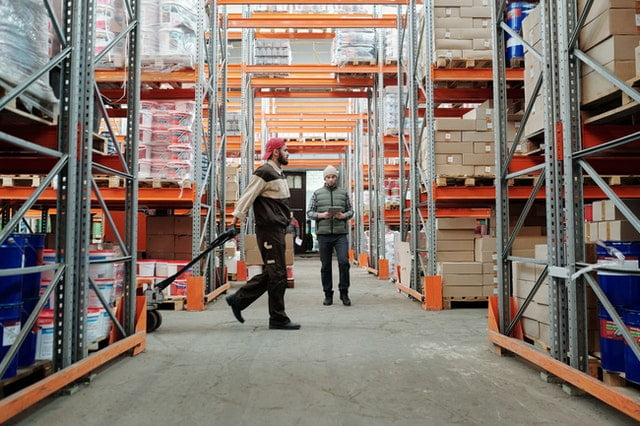Inside Indonesia’s Bonded Logistics Centers: Opportunities for Traders

Indonesia, Southeast Asia’s largest economy, is transforming its logistics infrastructure to meet the demands of a competitive global market. At the heart of this transformation lies an increasingly important facility—Bonded Logistics Centers (BLCs). These government-supported zones are designed to streamline trade operations, reduce logistical bottlenecks, and offer strategic advantages for importers, exporters, and manufacturers.
For international traders and businesses eyeing the Indonesian market, understanding how BLCs work—and the unique benefits they offer—can open the door to cost savings, smoother operations, and faster time-to-market.
1. What Are Bonded Logistics Centers (BLCs)?
Bonded Logistics Centers are special warehousing zones where imported goods can be stored for extended periods without incurring import duties and taxes until the goods are released for local use or re-exported. This model provides flexibility for traders who want to bring goods into Indonesia for processing, assembly, or delayed distribution.
Established under Presidential Regulation No. 85 of 2015, BLCs are part of Indonesia’s broader economic reform agenda to improve logistics efficiency and attract foreign investment.
➡️ View the regulation here (in Bahasa)
2. Key Features of Indonesia’s Bonded Logistics Centers
-
Deferred import duties and taxes
Goods stored in BLCs are exempt from import duty, VAT, and luxury tax until they are released into the domestic market. -
Longer storage durations
Compared to traditional bonded zones, BLCs allow longer storage durations—up to 3 years in some cases. -
Repackaging, sorting, and light assembly allowed
Businesses can conduct non-manufacturing processes like repackaging or labeling inside the BLC. -
Multiclient warehousing
A single BLC facility can serve multiple clients, making it cost-efficient for small and medium-sized enterprises (SMEs). -
Strategic locations
BLCs are located near major ports and industrial hubs, such as Tanjung Priok (Jakarta), Batam, Surabaya, and Medan.
➡️ Read more about Indonesia’s logistics reforms from Indonesia Investment Coordinating Board (BKPM)
3. Why BLCs Matter for Global Traders
a. Cash Flow Optimization
By deferring import taxes until goods are moved out of the center, businesses can better manage cash flow and inventory costs. This is especially helpful for seasonal products or large-volume shipments.
For example, a fashion importer can stock inventory in a BLC and only pay duties when products are dispatched to retail outlets, avoiding upfront capital lockup.
b. Trade Facilitation and Supply Chain Flexibility
BLCs reduce the administrative burden of customs clearance, leading to faster supply chain turnover. Traders can:
-
Ship in bulk
-
Sort or repack in-country
-
Dispatch based on actual demand
This improves agility in responding to local market shifts or regional re-export opportunities.
c. Support for E-Commerce Fulfillment
As Indonesia’s e-commerce market booms—with projected revenues exceeding USD 60 billion by 2025—BLCs are increasingly being used for cross-border e-commerce fulfillment.
E-commerce platforms or sellers can store goods in bonded facilities, then deliver to consumers with shorter lead times via last-mile logistics once an order is placed.
➡️ Learn more about Indonesia’s booming e-commerce sector
4. Sectoral Opportunities: Who Benefits Most?
Electronics & Tech
Many consumer electronics brands import components or finished products into Indonesia. BLCs allow them to store these goods and release only what is needed, avoiding large upfront tax bills.
Automotive & Spare Parts
Automotive OEMs and distributors benefit from better inventory control, just-in-time delivery systems, and cost-efficient spare part storage close to production plants or dealerships.
Textiles & Apparel
Fashion retailers can store seasonal merchandise in bonded warehouses, allowing for pre-positioning without immediately paying taxes.
FMCG & Pharmaceuticals
With stringent regulatory requirements and short shelf-lives, FMCG and pharma products gain from the controlled environment and logistics coordination offered by BLCs.
5. Indonesia’s Leading Bonded Logistics Centers
-
PT Cipta Krida Bahari (CKB Logistics)
One of the pioneers, CKB runs BLCs in several regions. Explore more -
PT Samudera Indonesia
Offers bonded logistics and shipping services with a focus on integrated maritime logistics. Visit Samudera Logistics -
Pelindo Group
The state-owned port operator provides access to BLCs near key ports such as Tanjung Priok and Tanjung Perak. Read more
6. Strategic Benefits for Exporters and Re-Exporters
BLCs in Indonesia aren’t only for local distribution—they also serve as re-export hubs for ASEAN markets. Foreign companies can:
-
Consolidate goods from multiple countries
-
Store and assemble in Indonesia
-
Re-export to regional markets like Malaysia, Vietnam, or the Philippines without paying Indonesian duties
This aligns well with Indonesia’s vision to become a regional logistics gateway in Southeast Asia.
7. The Government’s Push Toward Logistics Reform
Through the National Logistics Ecosystem (NLE) program, the Indonesian government is integrating BLCs into a digital platform that includes port systems, customs, and trade ministries.
➡️ Learn about the NLE program here
This effort improves transparency, reduces processing time, and enables end-to-end supply chain visibility for traders using bonded logistics centers.
8. Challenges to Consider
-
Regulatory changes: Businesses need to stay informed about updated customs or import-export rules.
-
Upfront coordination: Working with a bonded warehouse requires careful planning of documentation and approvals.
-
Limited scope of operations: Heavy manufacturing is not allowed within BLCs—only light processing or storage.
However, with the right logistics agent or trade partner in Indonesia, these hurdles can be mitigated effectively.
➡️ Work with vetted partners on Indonesia-Agent.com
Conclusion: A High-Impact Logistics Strategy for Smart Traders
Bonded Logistics Centers in Indonesia offer a unique competitive advantage for businesses seeking to streamline operations, manage inventory more flexibly, and reduce tax burdens. From supporting re-export strategies to fulfilling the needs of a growing e-commerce market, BLCs have become a cornerstone of Indonesia’s modern trade landscape.
As the government continues to enhance logistics efficiency and transparency through the NLE and digital reforms, the opportunity for international traders is only set to expand.
If you’re looking to break into or scale in Indonesia’s fast-evolving market, Bonded Logistics Centers may be the strategic edge your business needs.